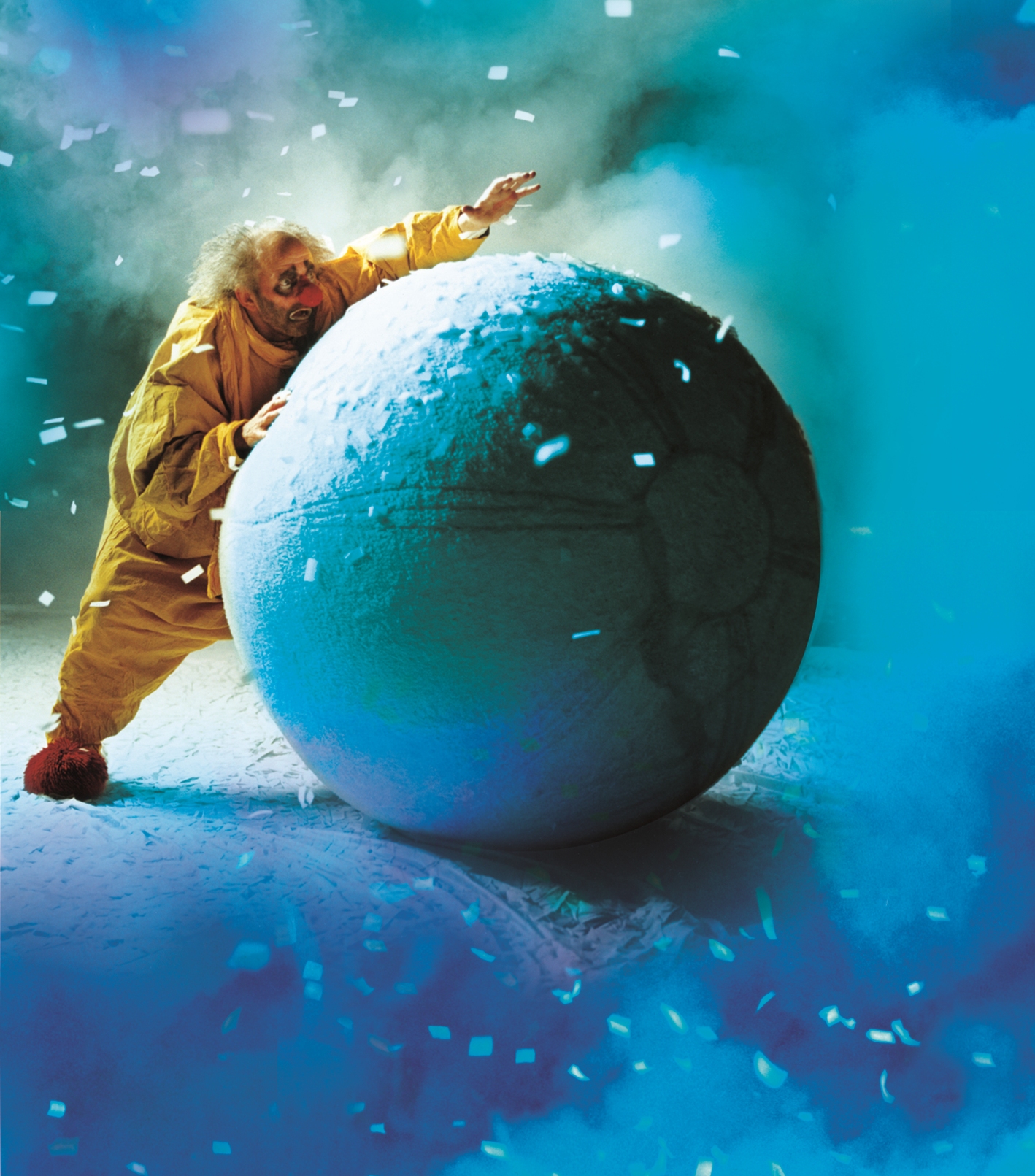An extraordinary show of mime, dance and music is returning to our shores; it is the vivid concept of an artist born in a small town in the heart of Russia. Slava Polunin, the bright-eyed, fabulously bearded and slightly mysterious creator of Slava’s Snowshow, has been heaped with accolades and awards for his breath-taking show.
Slava, 63, speaks no English so this interview was conducted with the help of a translator during his recent international tour. Inspired by Chaplin, Marcel Marceau and Engibarov, Slava’s tale brings hilarious clowning with intense pathos to theatre lovers; while it has no narrative as such, we follow a central character, a yellow clown sometimes played by Slava himself, and we can read in love and loss. Slava says of Snowshow: ‘The play was born out of years of reflection and experimentation. Before that, I worked in poetic clowning, but I wanted to go further in the direction of a tragicomedy.’
It’s all a long way from Novosil, a Russian town so small Google Streetview hasn’t been there, where he grew up, happy and simply.
He says: ‘I was born in a small town in central Russia and I have one sister. My parents had nothing to do with the arts and show business but my mother is still alive and watches my performances at every opportunity.’
His childhood was spent in forests, fields, and by a river, where his gift for storytelling was nurtured. He lived in the world of fantasies, and liked to invent new things and make up stories; building complicated tree houses and snow towns, and organising funny parties for his friends.
Through television and cinema he fell in love with the great clowns and mimes. Slava says: ‘I loved to learn, but I often amused my classmates and was kicked out of class. I was very lucky, there was one teacher at school who instilled a zest for life in us all. We went on many school trips including hiking and the theatre. she still comes to support us in the show when we go on tour which is lovely.’
The young man left home for the bright city lights of Leningrad; the 17-year-old was smitten by the opportunities there. He said: ‘My mother really wanted me to have a ‘serious’ profession. I went to an engineering college and simultaneously engaged in pantomime and performance. One day I called my mum from a concert; I was in the centre of the music hall and everything was glistening and the lights were flashing. I told her how much I loved it and she allowed me to leave college to follow my dreams.’
Slava joined a mime studio and began his long-term quest to reclaim and re-establish the art and craft of the true clown. Building on his innate talents, Slava and his theatre company, founded in 1979, took clowning out of the circus onto the streets, and into theatres. He spent the 1980s developing his craft, setting up his company Licedei, bringing more than 800 pantomime artists from all over Russia to Moscow – an unprecedented achievement as it featured semi-underground artists during the strict Communist control of all artistic events. Later, he invited foreign mime artists and clowns to Moscow for the first time, under the auspices of the World Gathering of Youth and Students. Maybe his freedom to share, to open up clowning, was born as a result of living under Communist suppression. He has said: ‘Freedom is everything to the clown. The only thing I cannot stand is when my freedom is restrained. I cannot imagine the situation when I have no freedom of choice.’
A passionate advocate of true clowning – ‘a great and magic treasure’ he once described the art form – as opposed to our accepted children’s party, painted face image, he looks beyond the obvious in his clowns.
Works included the Dreamer, a pantomime about children at play and eccentrics on the attic. Aware constantly of tradition, Slava and his company staged a funeral for his theatre, the Licedei in 1988, following Stanislavskian tradition that a theatre dies after twenty years of life. This was a reverential celebration during which Slava and his company placed coffins onstage and invited a host of guests to attend the requiem. A procession through the streets followed in which thousands of people participated and included the ceremonial floating of burning coffins down Leningrad (now St. Petersburg’s) Neva river.
And so began a new chapter which saw Slava leading a group of 150 clowns on a six-month tour of major capitals of Eastern and Western Europe in a procession called The Mir (Peace) Caravan. This was a travelling festival of theatre across Europe from Paris to Moscow. Up to 50 local companies joined them at each stop, boosting the huge troupe even further. What does he look for in his artists? Slava says: ‘Of course skills are vital, however for me, it is much more important that they are happy and joyful people who love life and are able to appreciate the beauty of it. I am inspired by very many things: nature and books are two of my biggest inspirations. ‘I’m a real bookworm. I have a huge library which I relish and have collected all my life. I love the theatre; my favourites of recent years include Pina Bausch and Robert Wilson.’
In the colour, vibrancy and all-encompassing nature of his shows, personal life is simple. He is married, with three sons, and lives in London with a home in Russia. He says: ‘Nothing relaxes me more than being surrounded by nature. I love to go walking in the woods or fishing in the river, there is simply nothing more beautiful.’ That’s not to mention his role as President of the Academy of Fools, which he founded in 1993, and which has produced more than 30 productions. And how do you follow Snowshow? He says: ‘New projects, new discoveries. Watch this space!’



